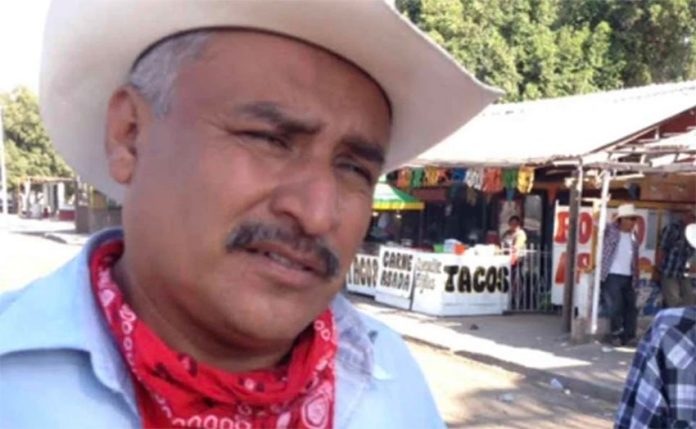The man accused of murdering a Yaqui leader in Sonora has been named as 26-year-old Francisco “N,” also known as “El Morocho,” and money is the suspected motive.
Tomás Rojo Valencia, a spokesman for his community, disappeared May 27 amid tensions over months of periodic blockades over gas ducts, water pipelines and railway lines that run across Yaqui territory.
Rojo’s body was found half buried in a rural area near the Yaqui town of Vícam on June 17, according to prosecutors, who said his head had been bashed in, probably with a hammer found near the scene.
State Attorney General Claudia Conteras said criminal gangs wanting money could be at the root of the murder.
“Criminal groups were interested in illegal benefits from charging tolls on the highway,” she said. “Tomás Rojo was pushing for the installation of a toll booth to bring order to the process of charging tolls, to benefit the Yaqui people,” she added.
Toll roads are tied to the politically sensitive topic of roadblocks, in which protest groups take over existing booths or set up an improvised blockade to charge motorists to pass. Officials say protesters raised about US $150 million by occupying toll plazas in 2020.
Businessmen and truckers have said that roadblocks in Yaqui territory inhibit the movement of raw materials and exports, and have complained protesters were sometimes abusive or demanded money to allow them to pass. In February, a trucker plowed through a Yaqui roadblock, hitting and killing a member of the group.
In late 2020, President López Obrador launched an offensive against the practice, sending the National Guard and police to clear many of them, though apparently not including Yaqui blockades.
The president is expected to apologize to the Yaqui people for crimes committed against them by the state between 1870 and 1880 in what is known as the Yaqui War.
